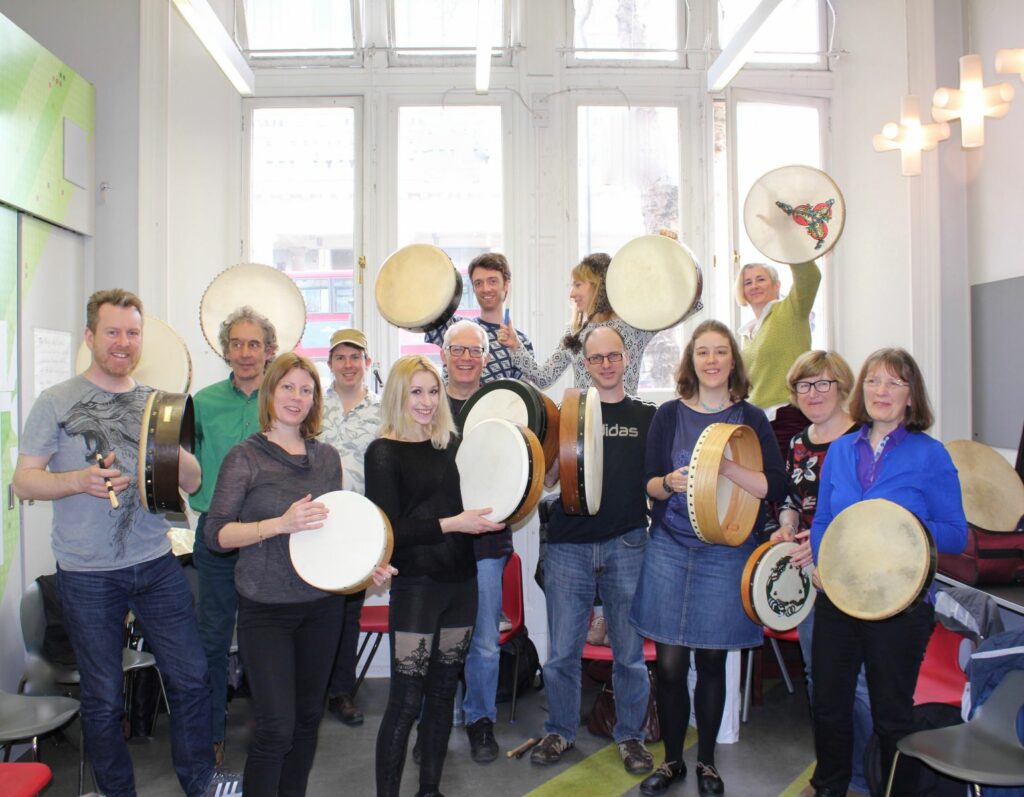The world is more complicated than ever and life around us seems to move at an ever faster pace, statistics show that anxiety and depression have risen by a third in just over four years – it’s clear that we are facing a significant and growing problem. Discovering new ways to target these issues present great challenges, but also, opportunities. As technology continues to dominate our lives and change our behaviours, research shows there are actions we can take to tackle these issues, one of which is through drumming.
Something to consider

The roots of drumming are ancient, archaeologists have discovered evidence that people have used drums for millennia; numerous small cylindrical drums have been excavated in southern parts of Turkey and Iran dating from 3000 BC. Drumming was important then and it is now, think about your favourite song or musical composition, is there a drum beat or distinctly rhythmical element central to its structure? Some anthropologists believe that rhythms and sounds may have been a precursor to the languages we speak today and used as a form of communication.
Learning to drum and setting out on the musical journey of rhythm and pulse can be enjoyable and therapeutic, here are five reasons why you should come join the party…
1. Drum out stress and anxiety
Research shows that participating in group drumming activities boosts the body’s production of endorphins, the ‘feel good’ hormones. Experiencing a group drumming session can be powerful and transformative, promoting feelings of being energised and focused, it’s hard to engage with other things like your smart phone. Research also shows that participants who had blood pressure checks before and after a one hour drumming session displayed a reversal in stress producing hormones, proving that this is a powerful and transformative way to manage stress and anxiety.
2. Maximise your brain function
Your brain loves it when you drum. Music is a powerful way to engage your brain in a full neurological workout; the visual, auditory and motor cortices work hard during a group drumming session. Drumming promotes synchronous brain activity, getting both sides of the brain working together whilst improving concentration, coordination and problem solving skills. The power of drumming is especially noticeable in people living with dementia and acquired brain injury. Therapeutic Instrumental Music Performance (TIMP) programmes show transformative results in stroke survivors and their rehabilitation, and music has been proven to be a powerful means of communication for those living with dementia.
3. Boost your immune system
There is growing evidence that drumming can be linked to a reduction in pro-inflammatory immune response in the body, helping to induce the opposite effect through increasing the positive anti-inflammatory defences your body needs to stay healthy. According to cancer specialist Dr Barry Bittman (who conducted extensive research in the fields of music and neurology), group drumming has the potential to increase cells associated with killing cancer and viruses. Research conducted at The University of Tokyo showed the number of white blood cells increased significantly, the slowing down and synchronisation of breathing during the sessions improved blood flow.
4. Feel more connected
With the constant quest for super speed broadband and the latest smart phone, do we still have the capacity to make real and meaningful connections to people and places? Drumming is a great way to feel connected to others without speaking or acting, but solely through the non-verbal pulsating rhythms created in a group. Meet new people, laugh, listen, reflect and be part of creating an incredible shared experience for yourself and those around you.

5. It’s fun!
Injecting fun into your life is a serious business! People who are deprived of fun and recreational experiences are more likely to commit crimes, be less productive and have low self-esteem. Drumming is one of the most fun and rewarding things to do – why not give it a try?
Starting in January 2018 we will be holding lots of free drumming workshops in Westminster Music Library, no experience necessary! Contact us to find out more: musiclibrary@westminster.gov.uk 020 7641 6200
Ruth Walters. Westminster Music Library.